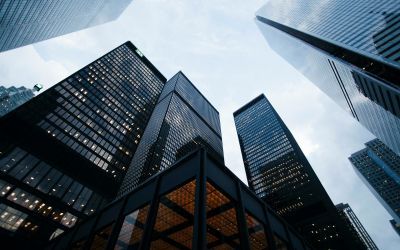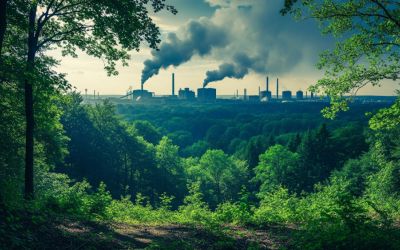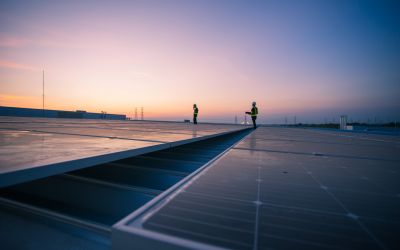The Private Sector and Sustainable Development
Climate Action spoke to Peter Bakker, the President and CEO of WBCSD, about how the private sector is championing sustainable development

The World Business Council for Sustainable Development (WBCSD) is a CEO-led organisation of forward-thinking companies that galvanises the global business community to create a sustainable future for business, society and the environment.
Climate Action spoke to Peter Bakker, the President and CEO of WBCSD, about how the private sector is championing sustainable development and supporting climate change mitigation and adaptation.
Campinas recently became the first Latin American city to join the WBCSD’s Sustainable Mobility Project. Could you tell us more about the project and how it will impact that region?
The WBCSD’s Sustainable Mobility project has developed a set of indicators that drive sustainable solutions to mobility problems. Campinas (pictured below left) is a fast growing, forward looking city that recognizes the need for change to allow it to continue its rapid growth whilst providing a good quality of life for its citizens. This requires providing a better mix through a multi modal mobility system that allows all the citizens to access safe and low carbon mobility.
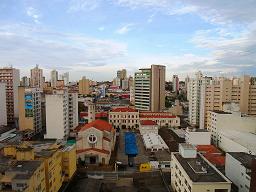
As the plan is implemented over the next few years Campinas will become a showcase in South America of an integrated, holistic multimodal approach to improved mobility, reducing emissions whilst supporting continued city growth.
WBCSD recently organised a workshop in Delhi on India-based solutions for sustainable agriculture. How is the private sector engaging in climate smart agriculture in India?
We are currently exploring how companies can contribute to sustainably increasing food security through collaborative action in critical geographies, focusing specifically on reducing food loss and waste, scaling up climate smart agriculture and enhancing smallholder farmers’ livelihoods. India has been identified as a key country where the WBCSD and its members could explore collaborative action across the agricultural value chain. Agriculture is a key sector in India, representing 17.7% of the GDP and occupying about 54% of its labor force. However, rapid industrialization, urbanization and climate change impacts have substantially increased pressures on farmers. Water, for example, is a critical issue for a sector that represents 90% of all water withdrawals. With 65% of the cropped area being rain-fed, the vulnerability of the sector will be further increased by climate-induced monsoon variability. On top of this issue, 32% of lands are degraded in India leading to reduced yields, and an estimated 40% of the food produced gets lost or wasted, which not only represents an economic loss, but also a significant waste of precious natural resources.
Rapid industrialisation, urbanisation and climate change impacts have substantially increased pressures on farmers
The workshop in India aimed at providing a networking platform for companies to share best practices whilst examining areas of common interest in piloting action across companies’ combined value chains. Rain water harvesting, drip irrigation, fertigation, improved soil fertility management or establishment of cold chains were some of the examples shared by participants. The workshop also helped emphasize the urgency of taking action in view of the important challenges faced by the agricultural sector in India.
WBCSD and ICLEI signed an agreement in August that will help cities and businesses collaborate on a global scale. How will the partnership promote action on climate change mitigation and adaptation?
This agreement is an exciting development, bringing together ICLEI – the world's leading association of cities and local governments dedicated to sustainable development – and the WBCSD – the global business organization promoting action for sustainability.
Jointly, we believe that city-business collaboration represents an enormous win-win opportunity to drive transformational global action on climate change. Cities will win by getting practical, cost-effective solutions to address the complex inter-connected challenges they are facing in reducing emissions and dealing with a changing climate. Leading businesses will win through expanding markets for innovative new solutions that will be essential for delivering transformational change.
However, engagement at a strategic level early in the planning process is key for capturing this opportunity. This is where the partnership between ICLEI and the WBCSD can play a very important catalytic role in enabling this type of high-impact collaboration between cities and business.
We already have a great track record in working together – ICLEI was an important partner in our Urban Infrastructure Initiative and we recently conducted a joint survey of city leaders to understand how collaboration with business could be improved.
Can you expand on the Future Leaders 2015 and how important it is for businesses to identify the sustainability leaders of tomorrow?
The role of business in society is changing: companies are increasingly expected to provide solutions to social and environmental challenges. The new landscape requires the leadership of business to understand the complex systemic nature of sustainability issues. Future business leaders will need to innovate and collaborate, effectively manage complex stakeholder relations and drive transformational change toward a more sustainable future.

The December 2015 COP21 meeting in Paris (pictured right) is a focal point for business as much as it is for development. The recent New York Climate Week, where 100 business leaders stood alongside 100 heads of state, demonstrated a new and determined global momentum to address climate change. The FLP 2015 will focus on improving the business case and scaling up action on climate change. Participants will gain a better understanding of the existing opportunities and barriers to a transition towards a low carbon economy. Their group work will be presented at COP21 in Paris as well as at the 2015 WBCSD Council Member Meeting to be held in Paris at the same time.
There are suggestions that energy efficiency is the most undervalued and underutilised mechanism to reduce emissions and cost to businesses. Would you agree and what more should be done to boost energy efficiency?
Energy efficiency is often referred to as a ‘hidden fuel’, simply seen as delivering energy demand reductions. When considered in this way, future projections suggest that the majority of economically viable energy efficiency investments will remain unrealised. We need a paradigm shift allowing energy efficiency to become the ‘first fuel’, with the multiple benefits of increased energy security, protection against energy price fluctuations, improved competitiveness and environmental sustainability.
The buildings we live and work in are the largest energy consuming sector in the world, accounting for over one-third of total final energy consumption and 19% of total greenhouse gas emissions. If we want to limit global temperature rise to 2°C, building energy consumption needs to be reduced by 80% by 2050. For business, improving energy efficiency of buildings is an important mechanism to reduce emissions and realize financial savings.
In our Energy Efficiency in Buildings (EEB 2.0) project, we have set ourselves the challenging target of achieving 1,000 commitments to energy-efficient buildings before the UN COP 21 in Paris in December 2015
The technologies for developing highly efficient, zero net-energy buildings already exist, yet the lack of awareness, financial constraints, regulatory impediments and split incentives are preventing the widespread uptake of energy-efficient buildings. One way to address this issue is to increase awareness and provide evidence for the business case. 140 of the WBCSD’s member organizations have committed to invest in energy efficient buildings and have realized significant financial returns on investment through considerable energy savings.
WBCSD will continue sharing best practice. In our Energy Efficiency in Buildings (EEB 2.0) project, we have set ourselves the challenging target of achieving 1,000 commitments to energy-efficient buildings before the UN COP 21 in Paris in December 2015. We hope that this will demonstrate the leadership of business on energy-efficiency and encourage favourable policy frameworks enabling a wider uptake of energy-efficient buildings.
How does the WBCSD engage with the building and construction industry and how crucial is it to have a greater uptake of green building worldwide?
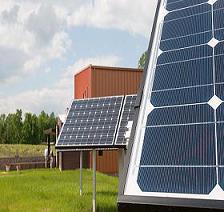
The EEB 2.0 project engages not only with the building and construction industries, but the full building market supply chain, with the aim of unlocking financially viable investments in energy efficiency in buildings (EEB). Engaging with the full market including energy utilities, financial institutions, policy makers and building users is vital to achieving a greater uptake of green buildings worldwide.
The WBCSD has developed an innovative approach to this engagement. Our EEB laboratories gather experts from the WBCSD member companies and local partners with developers, investors, designers, engineers, facility operators, building owners and tenants. In a 3 day, deep dive workshop, these experts explore and identify how market stakeholders can overcome barriers and accelerate action on EEB. To date, we have held these events in both developed and emerging markets around the globe including San Francisco, Shanghai, Warsaw and Houston. We are starting to see how, by bringing the entire building supply chain together, investments in EEB can be accelerated. As a result of our EEB Laboratory in Warsaw, we have seen the emergence of a cross-sectorial platform to drive forward local EEB investments and developments.
Future EEB laboratories are planned in Brazil, India, Singapore and the Netherlands. WBCSD will continue working with its partners to foster the greater uptake of energy efficient buildings crucial in mitigating global climate change.

_400_250_s_c1.png)
